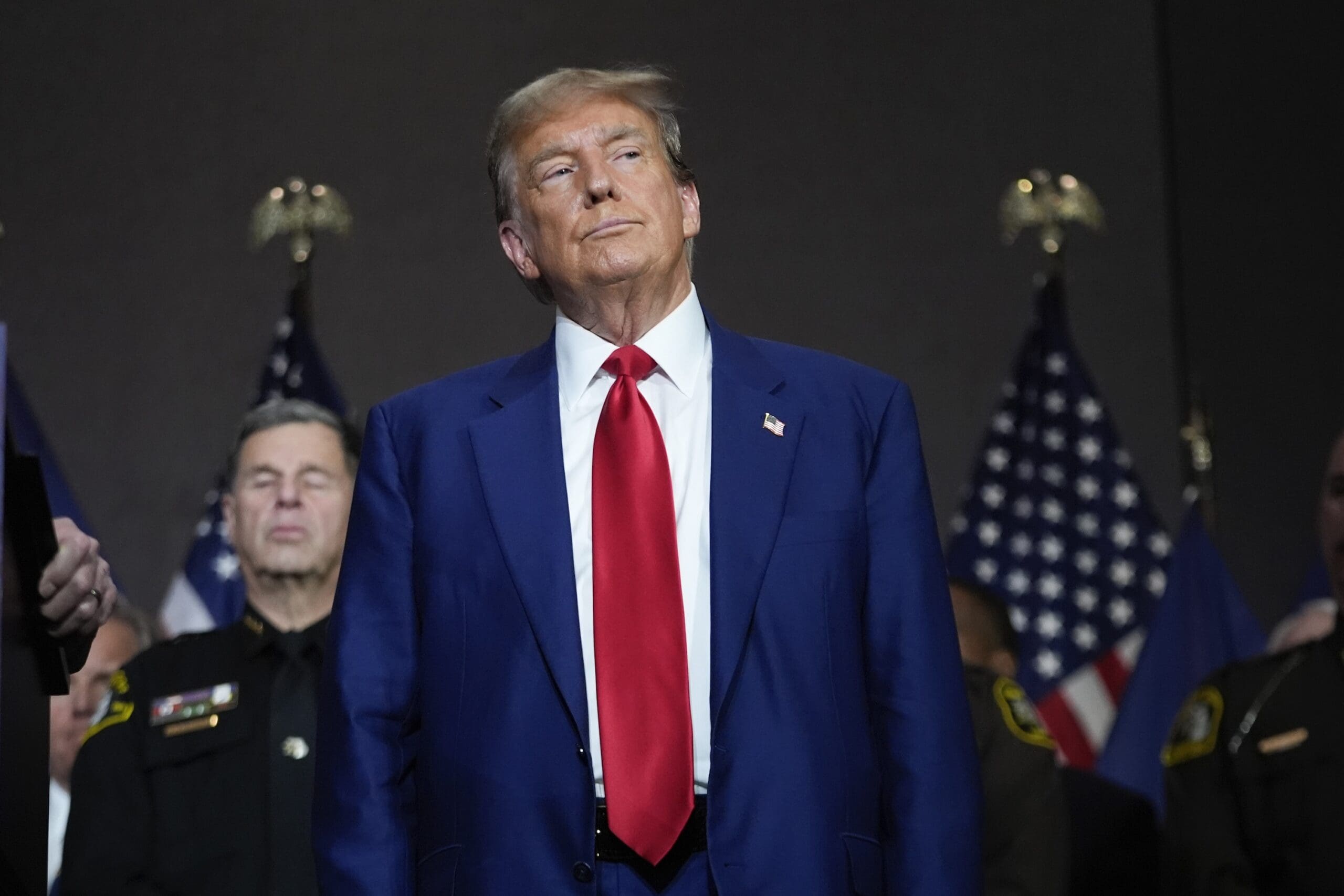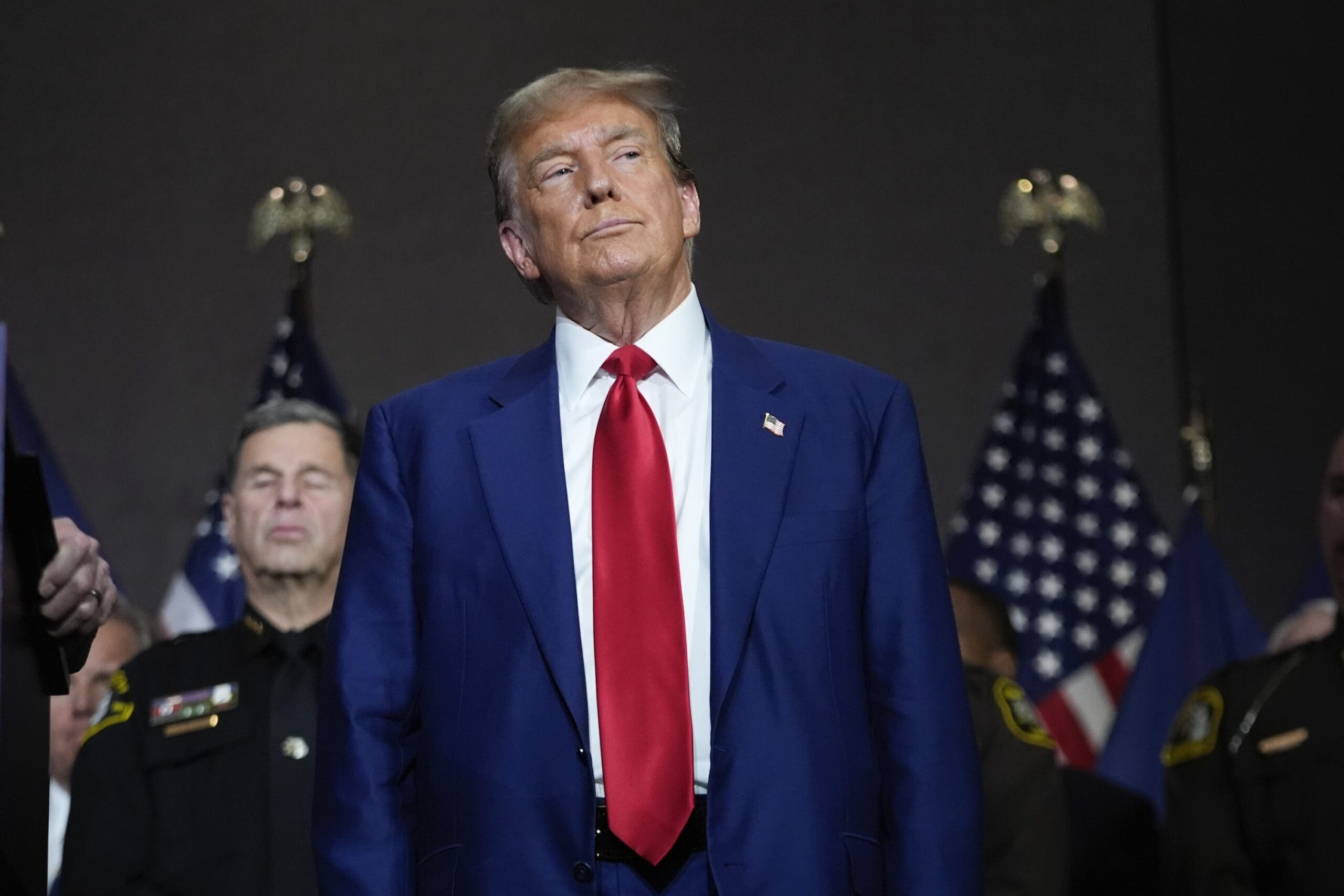Biden announces $900 million investment in car chargers along 53,000 miles of interstate

Oliver Willis
The Biden administration said it’s committed to deploying half a million electric vehicle chargers across the country by 2030 through direct investment and assistance to states.
President Joe Biden announced in a speech at the North American International Auto Show in Detroit on Wednesday that he has authorized $900 million to fund the deployment of half a million electric vehicle chargers across 53,000 miles of the U.S. interstate highway system.
The initiative is the latest policy under Biden’s strategy to transition the United States away from fossil fuels, create “clean energy” jobs, and dramatically cut the country’s output of greenhouse gases that contribute to global climate change. Biden has set a goal of reducing greenhouse gas pollution in the United States to 50% of 2005 levels by 2030.
Funding for the new EV infrastructure comes from the Infrastructure Investment and Jobs Act, which Biden signed into law in November.
Biden spoke about the initiative at the auto show, which is being held for the first time in three years after cancellations due to the COVID-19 pandemic:
As part of the infrastructure law we’re investing $7.5 billion to build electric vehicle charging stations all across America. So today, I’m pleased to announce we’re approving funding for the first 35 states, including Michigan, to build their own electric charging infrastructure throughout their state.
And y’all are going to be part of a network of 500,000 charging stations, 500,000 throughout the country, installed by the IBEW, who I owe a special thanks to for the last election.
Look, folks, the great American road trip is going to be fully electrified. Whether you’re driving coast to coast along I-10 or on I-75 here in Michigan, charging stations will be up and easy to find as gas stations are now.
The overall $1.9 trillion infrastructure law contains $5 billion to help states build a national EV charging network. The administration wants half a million chargers operating in the network by 2030. An April 2022 analysis by management consulting firm McKinsey & Company estimated that if half of the cars sold by 2030 are zero-emission vehicles, 1.2 million public charging stations will be required.
As of August, all 50 states, Washington, D.C., and Puerto Rico have submitted deployment plans for the network. New Mexico detailed how it will use federal funding to acquire, install, and maintain EV infrastructure; Florida’s plan is to become a “national leader” in EV infrastructure implementation, expand EV usage, and add infrastructure along evacuation routes used in the event of natural disasters such as hurricanes to ensure safe evacuation.
The White House says in a fact sheet posted on Sept. 14 that along with the infrastructure law, other major legislation Biden has signed — namely the Inflation Reduction Act and the CHIPS and Science Act — have spurred economic growth:
The President’s economic plan has generated an American, electric vehicle (EV) manufacturing boom that is creating new economic opportunity and tens of thousands of good-paying and union jobs across the country. … President Biden’s auto vision and leadership has [sic] positioned the United States to lead the EV future – to create jobs, make more in America, and fight climate change while advancing environmental justice. The President united automakers and autoworkers around the bold goal for electric vehicles to make up 50% of all vehicles sold in the United States by 2030. His economic agenda, including robust new ‘Made in America’ policies, has spurred domestic manufacturing of EVs, EV chargers, and batteries. And, thanks to the Inflation Reduction Act, President Biden is making new and used EVs affordable for consumers and providing the auto industry market certainty.
A number of companies have announced billions of dollars in new spending related to EV production since Biden became president in 2021. At least two companies plan to ramp up production in Michigan — once a major hub of auto manufacturing — and say they will create thousands of new jobs.
General Motors said in January it would invest $7 billion to convert a facility in Michigan for production of EV pickup trucks and to build a new battery plant. Ford announced in June that it plans to spend $2 billion on factories in Michigan.
The infrastructure law also contains provisions aimed at inducing companies to spend domestically as they build clean energy facilities. The Build America, Buy America Act — also part of the law — requires federally funded infrastructure and public works projects to buy products and services certified as made in America.
At the same time, the Inflation Reduction Act provides tax credits for people who purchase electric vehicles and contains provisions encouraging manufacturers to produce the vehicles domestically. Tax credits are intended to lower the cost of electric vehicles, making them competitive with traditional vehicles and increasing sales.
The administration says it hopes these new plans will create an “electric manufacturing boom” within the United States in the near future.
Published with permission of The American Independent Foundation.




